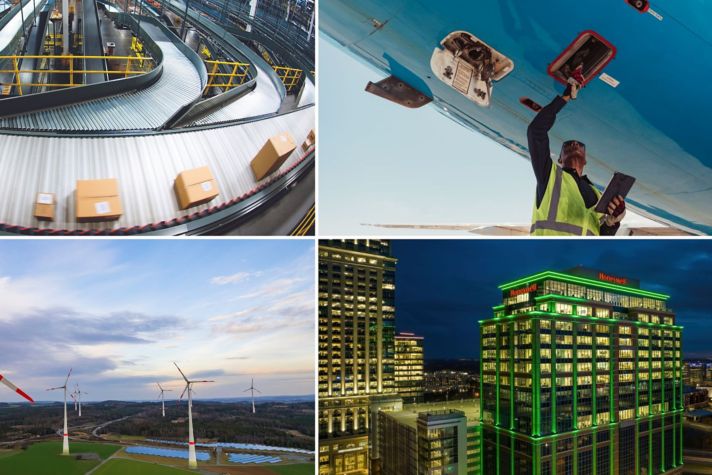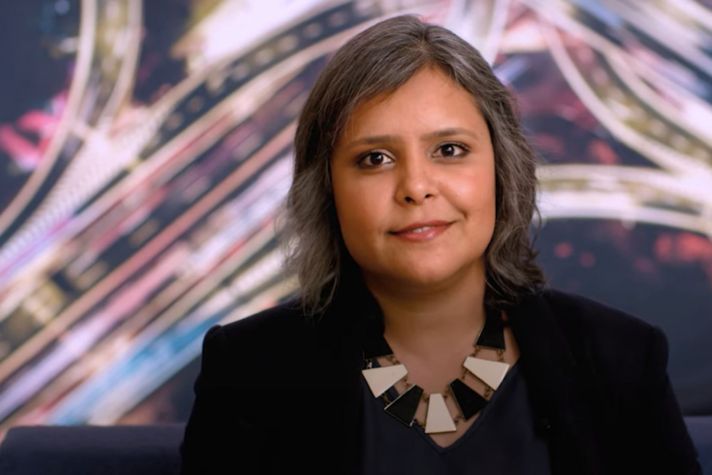-
 Global
Global-
Africa
-
Asia Pacific
-
Europe
-
Latin America
-
Middle East
-
North America
- |
- BUSINESSES
- |
- Contact
- |
-
 Global
Global-
Africa
-
Asia Pacific
-
Europe
-
Latin America
-
Middle East
-
North America
- |
- BUSINESSES
- |
- Contact
- |
You are browsing the product catalog for
- News
- How Sustainable Aviation Fuel Will Take Flight
How Sustainable Aviation Fuel Will Take Flight
The future of flight depends on technologies like sustainable aviation fuel (SAF) that will make flying more efficient. Learn about what’s needed to scale renewable fuels and a new initiative dedicated to SAF research, development and adoption.
In the near future, you may be able to fly on a plane powered completely by sustainable aviation fuel (SAF), developed from waste fats, oils and greases or other renewable sources.
The technology is proven, but for it to scale sufficiently, more progress needs to be made – including collaboration among the people and companies developing technologies for SAF production and government entities that can mandate its use.
Here’s what to know about SAF today and a recently announced initiative to accelerate its development.
What is SAF?
SAF is made from a variety of sources (or feedstocks), such as used fats, oils and greases, and other waste.
Recent advancements have included technology that converts the renewable fuel ethanol into a lower-carbon alternative to conventional jet fuel. There’s also technology that allows for the conversion of captured carbon dioxide (CO2) and green hydrogen to lead to a feedstock to create eFuels – or electrofuels – another class of renewable fuels.
Today, SAF can be blended up to 50% with conventional jet fuel. (In fact, you may have already flown on a plane that was fueled by this blend of SAF and conventional jet fuel.) Aerospace engineers have started to test Honeywell engines using SAF, and in 2021, United Airlines flew the first passenger flight using 100% SAF, traveling from Chicago to Washington, DC.
Why is SAF important?
The global aviation industry has a goal to achieve net-zero carbon emissions by 2050, and SAF could be a big part of that progress. SAF is expected to contribute around 65% of the emissions reduction needed for the aviation sector to reach its net-zero goal, according to the International Air Transport Association.
To increase adoption and get to the point where planes are fueled by 100% SAF, more collaboration among public and private organizations is needed to encourage the adoption of the technologies that are available now – as well as scale SAF production to the levels needed to meet demand for the future.
That's why Honeywell joined with seven other organizations ahead of the 2023 United Nations Climate Change Conference (COP28) to launch the Air-CRAFT initiative, a United Arab Emirates-based research consortium focused on developing, producing and scaling SAF technologies.
About the Air-CRAFT Consortium
The goal of Air-CRAFT, which stands for the UAE Centre for Renewable and Advanced Fuel Technologies for Aviation, is to unite policymakers, aviation regulators, fuel producers, academia and researchers, aircraft and powerplant manufacturers and airline operators to support the decarbonization of the aviation sector.
Along with Honeywell, Air-CRAFT comprises the industrial partners ADNOC, Boeing, Emirates Airline, ENOC, Ethiad Airways, Khalifa University and Masdar.
Air-CRAFT is a UAE-based initiative but aims to have global impact and support the commercial aviation industry’s net-zero goal.
Mohammed Mohaisen, President and CEO of Honeywell Middle East and North Africa, said in a statement: “Our suite of technologies enables SAF producers to capitalize on a range of non-competing feedstocks, including waste fats, used oils and greases, biomass, ethanol, methanol and captured carbon dioxide, and we are fully committed to accelerating the local production and deployment of SAF in the UAE. Underscoring this commitment, we are proud to form Air-CRAFT alongside our valued partners to support the UAE’s National SAF roadmap and advance its leadership in this critical innovation.”
To learn more about the different pathways that exist today to develop SAF and renewable fuels, listen to this podcast episode.
Copyright © 2024 Honeywell International Inc.




